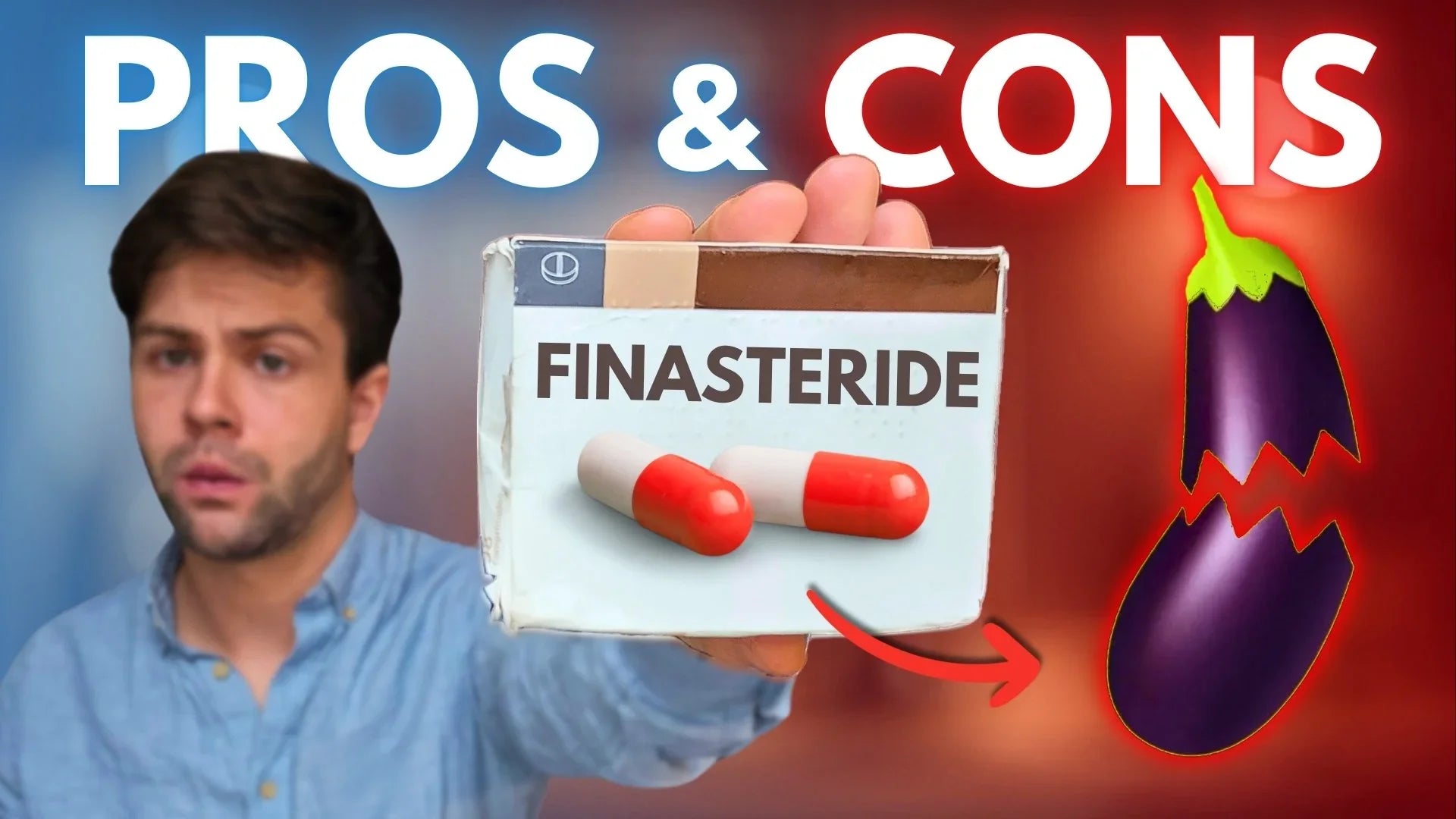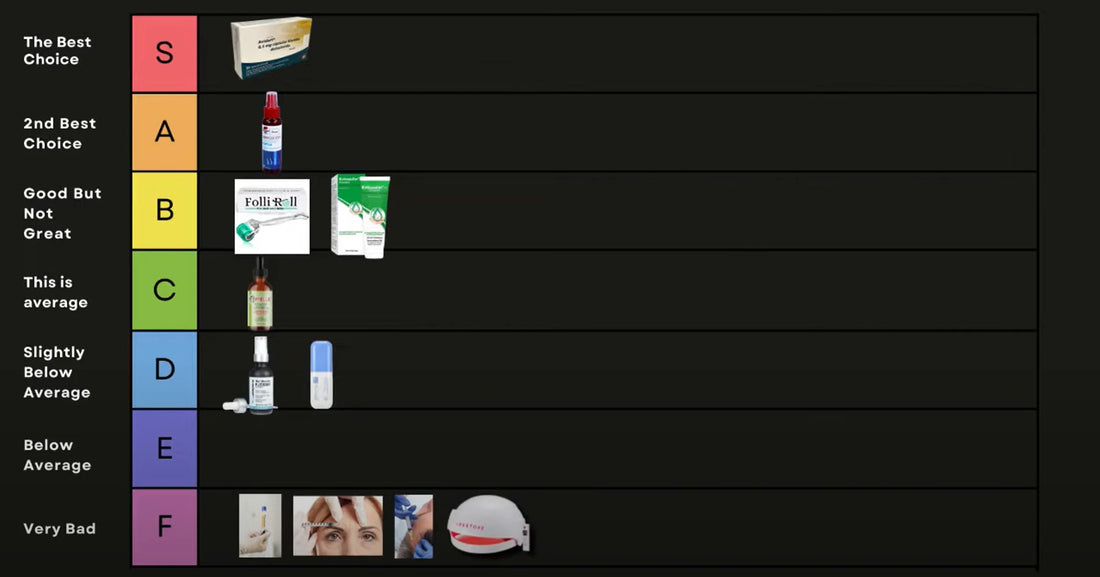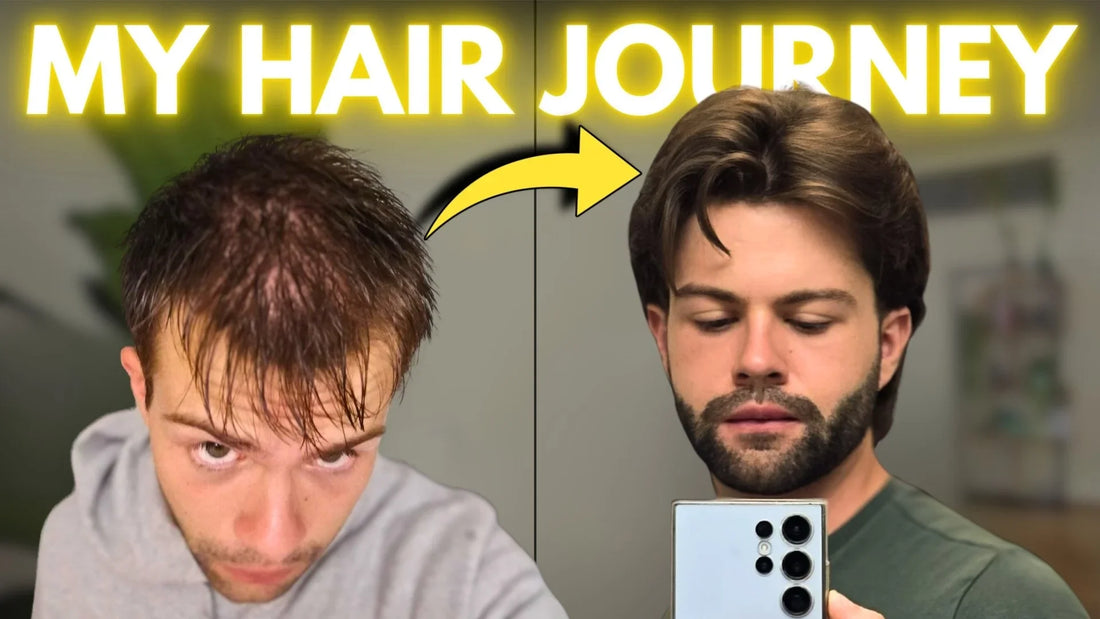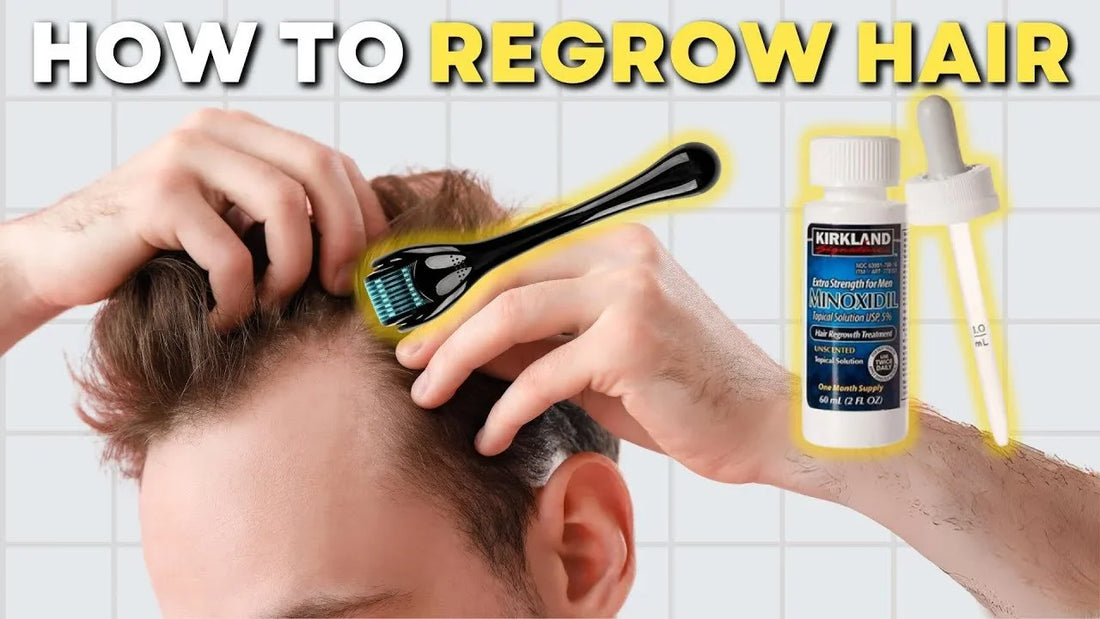A lot of people ask about the benefits and risks of using finasteride. I’ve been talking about hair loss solutions for years, and I know there’s still a lot of confusion around this medication. So let’s go over the key things you need to know about finasteride.
What is finasteride and how does it work?
First, finasteride is a pill you take once a day, and it works by lowering a hormone called DHT in your body. DHT is one of the main reasons for hair loss in people with male-pattern baldness. By reducing DHT, finasteride helps slow down hair loss and can even encourage some hair regrowth.
It’s important to understand that finasteride isn’t an instant fix. It can take a few months to start noticing results, and you’ll need to keep taking it to maintain those results. So if you’re looking for something that works overnight, finasteride isn’t that kind of solution. But if you’re patient and consistent, it can really make a difference.

Finasteride stops the production of DHT, which promotes healthier follicles.
What about Finasteride’s side effects?
One thing that often worries people are the potential side effects. Some people report issues like decreased libido or mood changes. However, these side effects are pretty rare, and many people don’t experience any issues at all. It’s also important to talk to your doctor about any concerns you have; they can help you decide if finasteride is right for you.
Can I have children while taking Finasteride?
Now, another concern some people have is about having children while using finasteride. The good news is that finasteride does not necessarily affect your ability to have children. However, if you’re planning to start a family, you can stop taking finasteride while trying to conceive, and then resume once you’ve had your child. This is something you can discuss with your doctor if it’s an important issue for you.
What happens if I stop taking Finasteride?
Another common question people have is, “What happens if I stop taking finasteride?” Just like with Minoxidil, if you stop, your hair will eventually go back to how it would have been without the medication. This doesn’t mean you’ll lose *all* your hair, but the benefits will fade over time. I think it’s a mistake to avoid finasteride just because of this. It’s like eating healthy—just because you might lose some of those benefits if you stop doesn’t mean it wasn’t worth it to begin with.
Conclusion
And remember, genetic hair loss is progressive. This means that, if left untreated, it will likely get worse over time. Finasteride can help slow it down, which can be really valuable for anyone looking to keep the hair they have.
These are some of the main things people need to know about finasteride. I hope this helps clear up some confusion.






